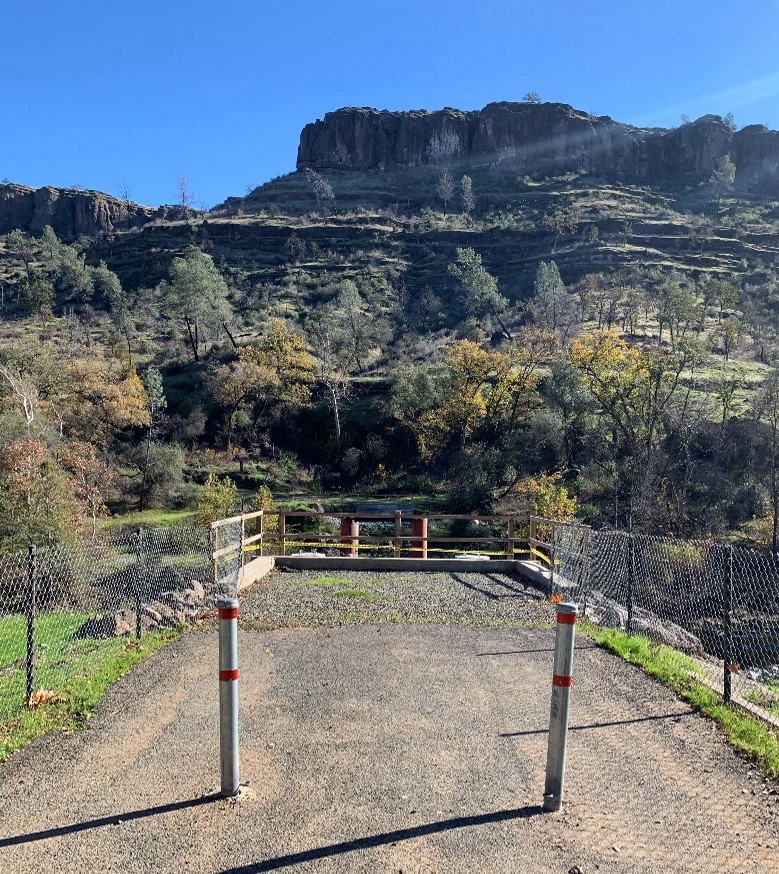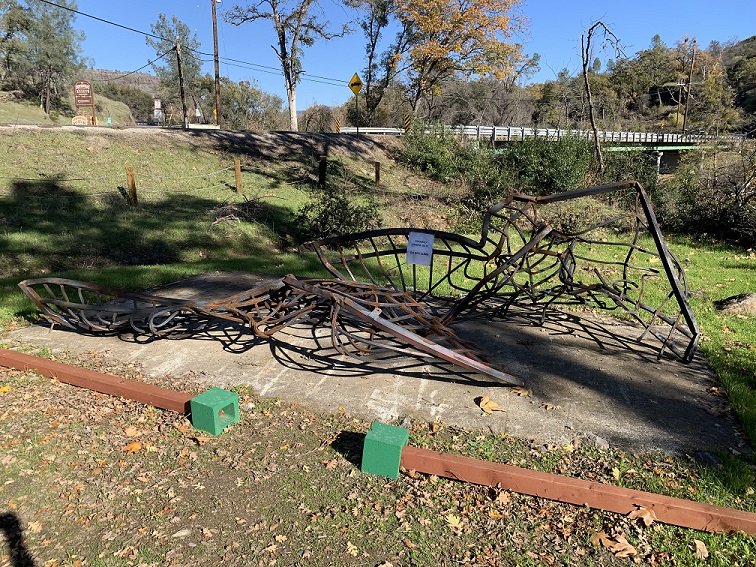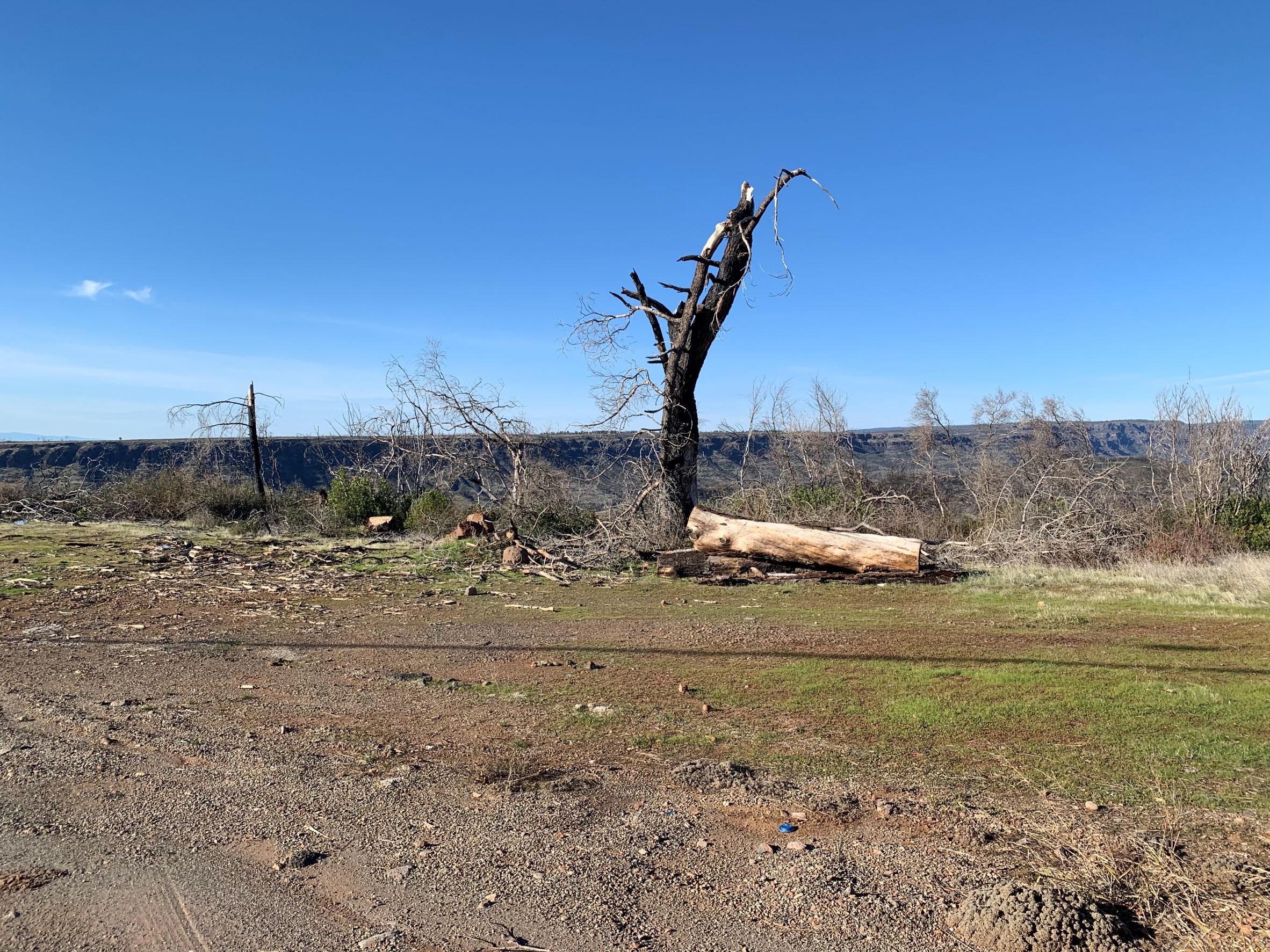Welcome to my project page: "Amateur Anthropologist"
Click the box below for my exploration of personal ethnography and subjectivity, where I explain my own connection to my work and apply Renato Rosaldo's concepts of objectivism and ethnographic methods!


HISTORY
In 2018, rural Northern California experienced the United States' most deadly wildfire to date. Beginning in the early hours of the morning on November 8th, 2018, the Camp Fire tore through the small towns of Magalia, Paradise, Concow, Pulga, and pockets of mountain communities such as Butte Creek Canyon.
When the fire finished burning, at least 86 people were dead and 95% of Paradise was reduced to rubble.
Thousands of people fled to surrounding cities such as Chico, Redding, and Red Bluff, but many had nowhere to go. These individuals traveled far and wide to stay with family, and those who had no personal ties or economic means occupied Walmart parking lots, Federal Emergency Management Agency (FEMA) trailers, or any place they could rest their feet.
The purpose of this webpage is to provide the viewer my personal experience with this fire, accounts of those who lost everything, tales of the equally disrupted animal and plant worlds, and to shine light on how this natural disaster exposes different ways beings adapt to a climate-changed world.
I am forever grateful for the individuals who shared their stories with me, and for the opportunity to explore different modes of listening. Humans, non-human animals, and multiplicities of plant species have more to tell me than I could ever have imagined.

WORKS CITED
Rosaldo, Renato. "Grief and a Headhunter's Rage." in Culture and Truth: The Remaking of Social Analysis. (Boston: Beacon Press; London: Taylor & Francis, 1993 [1989]).
Tsing, Anna, Heather Swanson, Elaine Gan, and Nils Bubandt. "The Art of Living on a Damaged Planet: The Ghosts and Monsters of the Anthropocene." (Minneapolis: University of Minesota Press, 2017).
Helmreich, Stefan. "An anthropologist underwater: Immersive soundscapes, submarine cyborgs, and transductive ethnography." American Ethnologist (34) no. 4. 2007: 621-641.
Haraway, Donna. "Staying with the Trouble: Making Kin in the Chthulucene." (Durham and London: Duke University Press, 2016).
Above: Butte Creek Canyon's historic covered bridge site, bridge destroyed in the fire.
Below: Covered bridge gate after the fire. (Sign reads: "Covered bridge gate, do not climb")
^ Tree remnants along the burn scar, on the road between Paradise and Chico. ^
created by: Sarah Niederholzer, Senior at the University of California, Davis
I. Brief history of my research topic and my project's purpose
II. Links to three webpages, each home to an exploratory essay relating to my research experiences
- "multispecies moments"
- "fire for the better?"
- "instead of objectivity"
III. Field notes and drawings
IV. Photos taken I have taken during my time in the field
V. Works cited
CONTENTS
instead of objectivity
multispecies moments
Click the box below for thoughts about multispecies livability in the Anthropocene.
fire for the better?
Click the box below for stories and observations of how this natural disaster meant a new lease on life for some plant and animal individuals.
"The more one looks, the more the name of the game of living and dying on earth is a convoluted multispecies affair that goes beyond the name of symbiosis, the yoking together of companion species, at the table together." (Haraway, 2016)